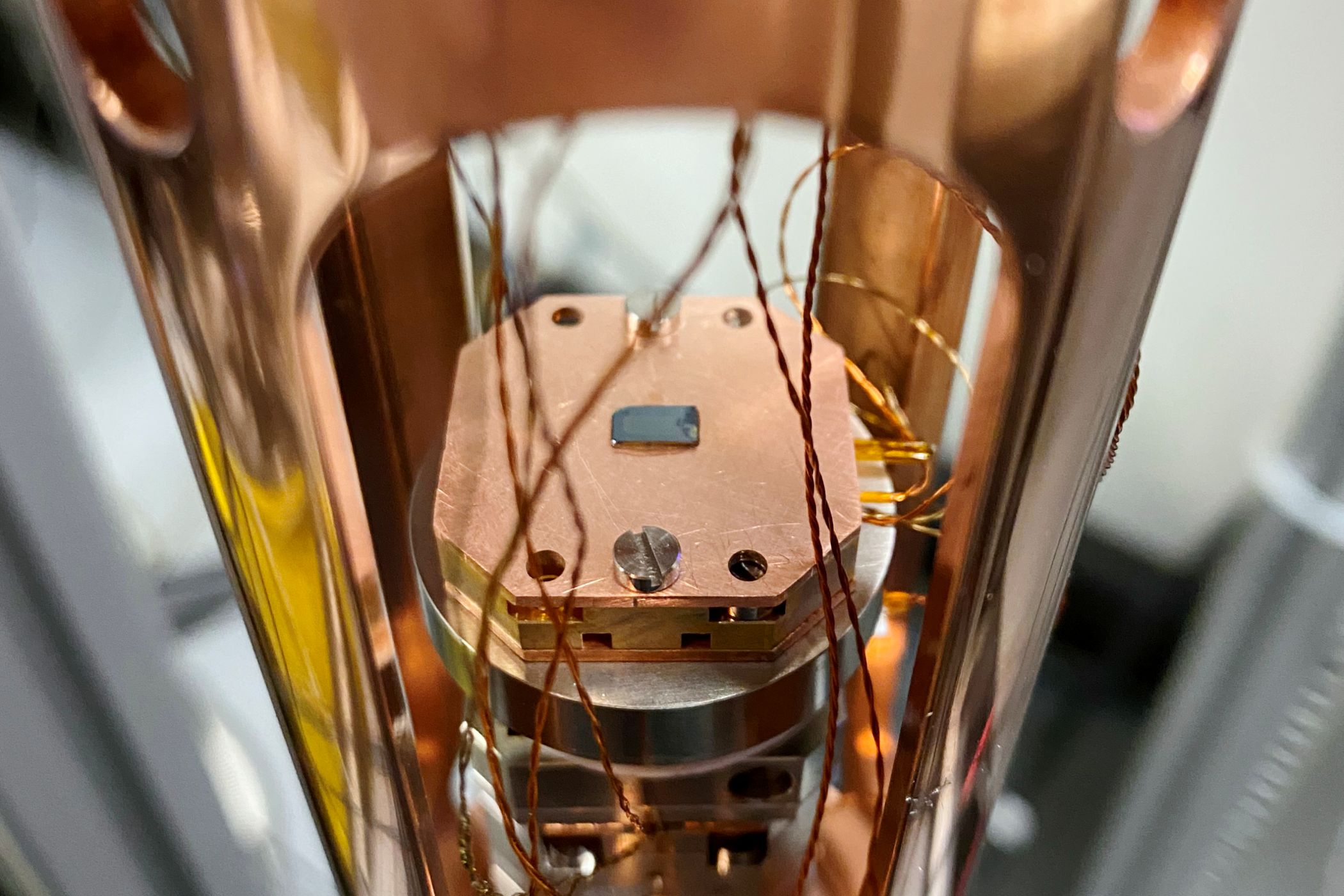Science
Physicists Achieve Breakthrough in Controlling Dark Excitons

Physicists from Austria and Germany have successfully developed a method to control dark excitons within semiconductor quantum dots, marking a significant advancement in quantum physics. This breakthrough has the potential to facilitate the generation of single pairs of entangled photons on demand, which could revolutionize quantum information storage and communication.
Excitons, the quasiparticles in question, consist of pairs formed by negatively charged electrons and positively charged “holes.” When these particles have opposite spins, they recombine readily, resulting in the emission of a photon, categorizing them as “bright” excitons. Conversely, dark excitons, which occur when electrons and holes possess parallel spins, do not emit photons during recombination, making them optically inactive. This inactivity grants dark excitons longer lifetimes, making them ideal for storing quantum states.
Gregor Weihs, a quantum photonics expert at the Universität Innsbruck, led the study, emphasizing the significance of dark excitons in quantum communication applications. “This information can be released later for use in optical quantum computing, secure communication via quantum key distribution (QKD), and general quantum information distribution,” Weihs explained.
Despite their advantages, dark excitons have historically been challenging to create and control. According to Weihs, they are often generated randomly in semiconductor quantum dots, particularly when a higher-energy quantum dot decays to a lower-energy state.
Innovative Techniques for Dark Exciton Control
The researchers presented their findings in the journal Science Advances, demonstrating that they could manage the production of dark excitons using specially designed laser pulses. These pulses are “chirped,” meaning their frequency changes within the pulse duration. This innovation allows for transitions between different quantum dot states.
“We first bring the quantum dot to the (bright) biexciton state using a conventional technique and then apply a (storage) chirped laser pulse that turns this biexciton occupation into a dark state,” Weihs noted. The chirped laser pulse utilized is negatively chirped, decreasing in frequency over time. This process is reversible; a positively chirped retrieval pulse can convert the dark exciton back to a bright state.
This technique could enable the generation of entangled photon pairs on demand, which is crucial for various quantum communication protocols. Weihs highlighted that this method could be universally applicable to most quantum dot types, unlike existing methods that rely on polarization entanglement, which only works with specific quantum dot properties.
Future Implications and Ongoing Research
The lead author of the study, Florian Kappe, along with colleague Vikas Remesh, described their research as both challenging and rewarding. They emphasized the development of multiple optical excitation methods for quantum dots throughout the project, showcasing the collaborative effort required in this field.
Currently, the team is investigating the coherence time of dark exciton states, a critical factor in determining their ability to store quantum information. Weihs noted that their ongoing research could lead to the generation of higher-dimensional time-bin entangled photon pairs, such as qutrits, which can hold three possible values.
“Looking further ahead, we envision this technique being applied to multi-excitonic complexes in quantum dot molecules,” Weihs added. Such advancements could facilitate multi-photon entanglement, including Greenberger-Horne-Zeilinger (GHZ) states, which are vital for multiparty quantum communication scenarios.
This breakthrough in controlling dark excitons not only enhances the understanding of quantum dot physics but also paves the way for practical applications in quantum technology, promising a future of innovative solutions in communication and information storage.
-

 Entertainment2 months ago
Entertainment2 months agoIconic 90s TV Show House Hits Market for £1.1 Million
-

 Lifestyle4 months ago
Lifestyle4 months agoMilk Bank Urges Mothers to Donate for Premature Babies’ Health
-

 Sports3 months ago
Sports3 months agoAlessia Russo Signs Long-Term Deal with Arsenal Ahead of WSL Season
-

 Lifestyle4 months ago
Lifestyle4 months agoShoppers Flock to Discounted Neck Pillow on Amazon for Travel Comfort
-

 Politics4 months ago
Politics4 months agoMuseums Body Critiques EHRC Proposals on Gender Facilities
-

 Business4 months ago
Business4 months agoTrump Visits Europe: Business, Politics, or Leisure?
-

 Lifestyle4 months ago
Lifestyle4 months agoJapanese Teen Sorato Shimizu Breaks U18 100m Record in 10 Seconds
-

 Politics4 months ago
Politics4 months agoCouple Shares Inspiring Love Story Defying Height Stereotypes
-

 World4 months ago
World4 months agoAnglian Water Raises Concerns Over Proposed AI Data Centre
-

 Sports4 months ago
Sports4 months agoBournemouth Dominates Everton with 3-0 Victory in Premier League Summer Series
-

 World4 months ago
World4 months agoWreckage of Missing Russian Passenger Plane Discovered in Flames
-

 Lifestyle4 months ago
Lifestyle4 months agoShoppers Rave About Roman’s £42 Midi Dress, Calling It ‘Elegant’









